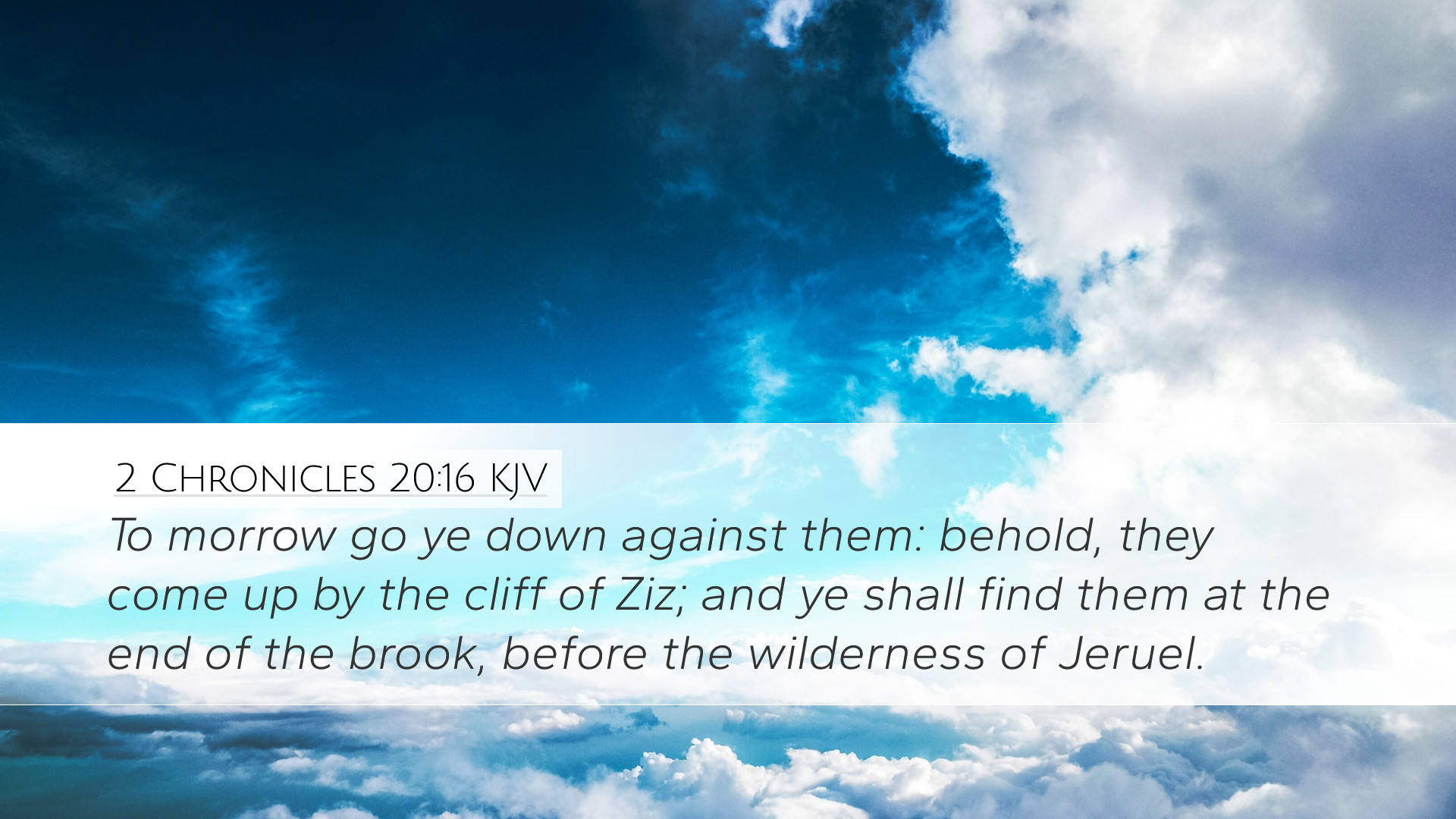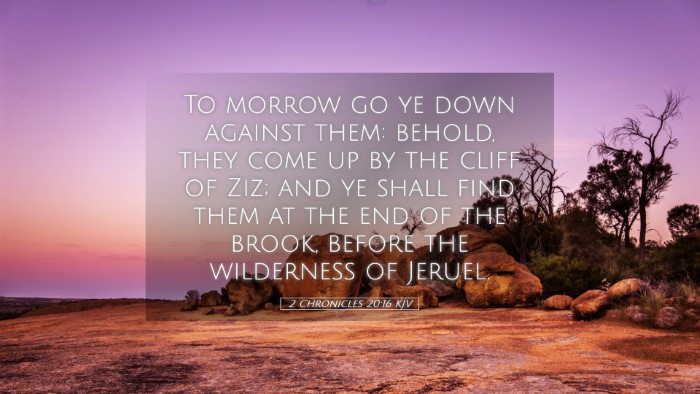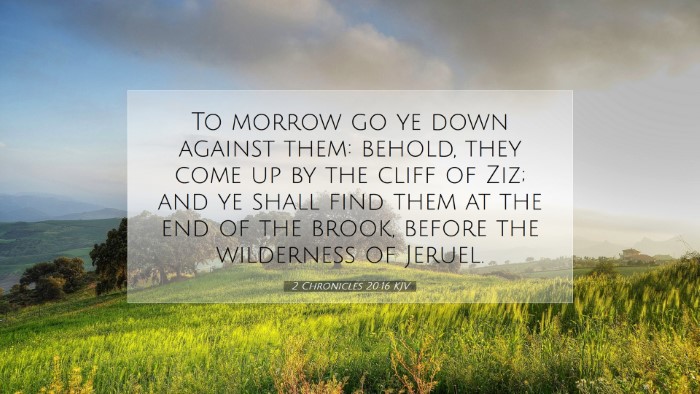Commentary on 2 Chronicles 20:16
Verse: "Tomorrow go ye down against them: behold, they come up by the cliff of Ziz; and ye shall find them at the end of the brook, before the wilderness of Jeruel." (2 Chronicles 20:16)
Introduction
This verse captures a pivotal moment in the reign of King Jehoshaphat of Judah, a time characterized by national distress due to impending invasion by a coalition of Moabites, Ammonites, and Meunites. The verse is part of God’s prophetic reassurance to Jehoshaphat and the people of Judah, delivered through the prophet Jahaziel, affirming God's intervention in their dire circumstances.
Context and Background
2 Chronicles 20 narrates the story of how Jehoshaphat faced a formidable enemy. After an alarming report of an invading army, Jehoshaphat sought the Lord with fasting and prayer, demonstrating his reliance on God. This plea for divine guidance set the stage for the prophetic response that would follow.
- Theological Significance: The encouragement to "go down against them" underscores a theme that recurs throughout Scripture: God often calls His people to act courageously in the face of overwhelming odds. The assurance of God’s presence amidst trials invites a response of faith and action.
- Historical Context: As Jehoshaphat prepared for battle, he arranged for the worshippers to lead the army, highlighting the power of worship in invoking God’s presence. This event illustrates how faith can turn the tide in seemingly lost battles.
Insights from Public Domain Commentaries
Matthew Henry
Matthew Henry emphasizes the practical nature of divine instructions. In his commentary, he notes that although the people were advised to engage in battle, their victory would not come from military might but from their faith in God. The cliff of Ziz, mentioned in the verse, serves as a geographical marker of the enemy’s position, giving additional context for their strategy in the upcoming encounter.
Albert Barnes
Albert Barnes focuses on the specific command to go forth against the enemy. He interprets this command as a blend of human action coupled with divine assurance. Barnes clarifies that God expected the Israelites to take the physical step of confrontation, yet their confidence was meant to rest entirely in God's promise of deliverance. This serves as an important reminder for believers on the necessity of balancing faith and action.
Adam Clarke
Adam Clarke provides a detailed analysis of the terms used in the original text, explaining the significance of the geographical locations referenced. Clarke mentions that the "cliff of Ziz" was a known strategic point, indicating God's direction in the chaos. He further expounds upon the lowly position of Judah, which makes their forthcoming victory all the more remarkable and a testimony to God’s power working through weakness.
Theological Themes
- Divine Guidance: The phrase "go ye down against them" reflects God's sovereignty in guiding His people. It invites believers to trust in God’s plans, even when those plans seem counterintuitive to human logic.
- Faith and Obedience: Jehoshaphat's reaction to God’s command illustrates a model of proactive faith. His willingness to act upon God’s word reinforces the Biblical principle that faith without works is dead (James 2:26).
- God’s Sovereignty in Conflict: This text is a vivid reminder of God’s ultimate control over national and personal crises. He orchestrates events and solutions that often transcend human understanding.
Practical Applications
This passage offers profound lessons for modern-day believers:
- Prayerful Dependence: Like Jehoshaphat, modern believers are called to seek God's guidance through prayer, especially in times of crisis.
- Worship as Weaponry: The role of worship in battle serves as a model for churches today. Leading with worship can shift the atmosphere and invite God’s intervention.
- Acting on God’s Promises: Believers are encouraged to take active steps based on divine leading, trusting that God is working on their behalf.
Conclusion
In summary, 2 Chronicles 20:16 serves as a rich source of encouragement and teaching. It encapsulates the essence of faith in action, the need for divine assistance in challenges, and the extraordinary ways in which God can deliver His people. As followers of Christ navigate their own trials, this passage remains a timeless reminder of God’s unwavering presence and call to courage.


